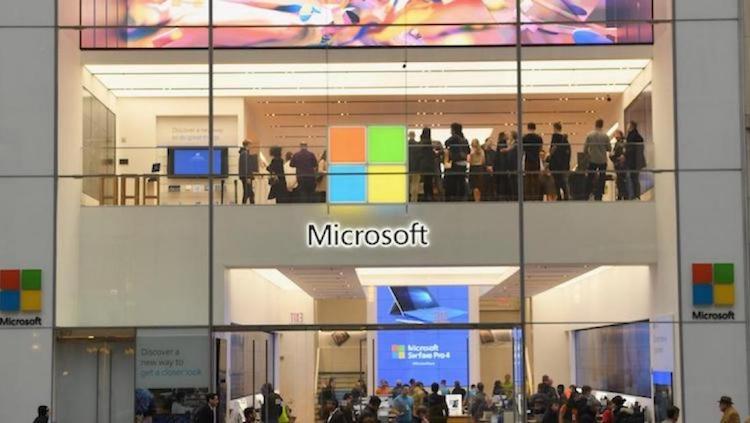NAB: Microsoft Is Playing Spectrum Bait & Switch

The smarter way to stay on top of broadcasting and cable industry. Sign up below
You are now subscribed
Your newsletter sign-up was successful
The spectrum turf war between broadcasters and Microsoft continued apace this week, with the National Association of Broadcasters telling the FCC the computer giant was playing a game of "white spaces" bait and switch.
Microsoft has pitched the FCC on reserving more channels for unlicensed devices in the broadcast band as part of the post-incentive auction repack.
In meetings with staffers of commissioners Mignon Clyburn and Michael O'Rielly this week, the NAB said that if, as Microsoft alleges, there will be plenty of spectrum for everyone, then there is no need to reserve it before the repack accommodates broadcasters' needs—including for low-power, translators and, potentially, a new transmission standard.
"NAB does not object to unlicensed operations in the TV band as long as those operations do not cause harmful interference to licensed television services, deprive viewers of television service they receive today or stifle innovation in the broadcast band."
Related: ATBA: Microsoft's Plan Would Destroy Community TV
And if getting the channels was so crucial, it added, Microsoft had a chance to reserve it via securing licenses in the auction. "If Microsoft so urgently needs guaranteed access to low-band spectrum for its business plans," said NAB, "it should have participated in the incentive auction and won the right to licensed spectrum that would provide the certainty Microsoft claims it needs. Indeed, if Microsoft is truly interested in using low-band spectrum to provide rural broadband, it could have acquired access to 10 MHz of spectrum outside the top-50 Partial Economic Areas for perhaps $500 million, less than one-tenth of one percent of Microsoft’s market capitalization. Instead, Microsoft is asking the Commission to grant it spectrum for free, with no buildout requirements or service requirements of any kind–substantially better terms than winning auction bidders received."
Last month, Microsoft execs met with commissioner aides and FCC staffers to argue that reserving channels for unlicensed was important to enable internet access for rural and underserved communities, and Microsoft president Brad Smith talked up "tapping into unused spectrum" as part of a national rural broadband strategy at a Media Institute luncheon July 11.
The smarter way to stay on top of broadcasting and cable industry. Sign up below
Rural broadband is a priority for FCC chairman Ajit Pai and legislators on both sides of the aisle, so framing the white spaces ask as a rural solution makes a lot of political sense.
Contributing editor John Eggerton has been an editor and/or writer on media regulation, legislation and policy for over four decades, including covering the FCC, FTC, Congress, the major media trade associations, and the federal courts. In addition to Multichannel News and Broadcasting + Cable, his work has appeared in Radio World, TV Technology, TV Fax, This Week in Consumer Electronics, Variety and the Encyclopedia Britannica.

